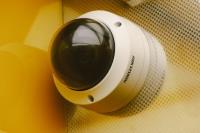 Add My Company
Add My Company
Sign In

Using security cameras at commercial and residential properties is becoming increasingly crucial as the likelihood of unexpected events rises daily. Faster evacuations and the availability of visual evidence in the event of crimes are made possible by the ability to record footage of accidents or theft on a camera.
However, several of these existing camera types involve advanced technology. Therefore, first-time investors might be unclear about the differences between IP and analogue cameras. With that in mind, listed below are a few key differences between the two that will help you decide which one is the right for you.
Differences in Functionality
IP Cameras are always connected to the internet, allowing you to view live video through the cloud or a standalone mobile app. But that doesn’t mean they won’t work without an internet connection. If you don’t have an active internet connection, your mobile needs to be connected to the camera’s internet hotspot to view live video. However, this limits your ability to view video when your smartphone is connected to another network.
Most CCTV cameras are analogue, meaning they are not connected to the internet. However, that doesn’t mean that this camera doesn’t use technology to function. Only the camera itself is analogue. The only peripheral that requires setup is a DVR, which could make installation more difficult since it requires a wired connection. Once the camera has recorded the video, it is transmitted to the DVR hard drive and converted into a digital recording.
Differences in Cost
The cost of analogue CCTV camera systems may increase twice since a DVR purchase is necessary. In turn, despite recent price cuts for IP cameras, analogue cameras can occasionally be more expensive.
This hinges on whether you want to include the cost of surveillance cameras in your home security system budget. Given that you are purchasing these cameras outright, you need to weigh the pros and cons of both camera types to make a more informed decision. Go for an analogue camera if you can bear the extra cost of a DVR and wiring. On the other hand, if you’re short on space, a wireless IP camera will be your best bet, no matter the cost.
Ultimately, it all depends on whether you want your cameras to have extra features. For instance, an IP camera with two-way audio and motion detection will cost more than an analogue camera and DVR combination.
Differences in Encryption Levels
Going with an IP camera has the advantage of a constant internet connection for security purposes. These cameras utilize modern encryption techniques to prevent camera hacking.
In contrast, analogue cameras lack encryption altogether, leaving them more susceptible to hacker attempts. But this can only happen if someone gains access to your DVR.
Wrapping Up
No matter the differences between the two camera technologies, your decision depends on your overall budget or use case. Of course, there are a few huge differences between these cameras that might make you think otherwise. However, both analogue and IP cameras do an exceptional job of keeping an eye on your property. So, we cannot say that one is better than the other. It totally depends on how you plan to use them!
For more information on CCTV Analogue Vs. IP Cameras – Which One Is Better? talk to Eagle Security Solutions Ltd
Enquire Now
More Blogs
List your company on FindTheNeedle.

